One Thing That Works For Me with guest Cynthia Ruchti: When Considering an Author's Proposal

Good Monday morning, Seeker villagers! How is it already the middle of June? Goodness! Anyway, I (Carrie) am here to introduce today's guest for this month's 'One Thing That Works For Me' series. Please join me in welcoming one of my very favorite people, Cynthia Ruchti, as she shares one thing that works for her when she wears her agent hat :)
ONE THING THAT WORKS FOR ME…when considering an author’s proposal
Having written my own proposals for a bunch of books (many of the more than 36 now in print) and after reviewing a number inching close to a thousand proposals from clients and prospective clients in four-plus years as an agent so far, I can pinpoint the moment when I know “this might work.”Can you guess which of these almost equally important strengths in a book proposal rises above the rest in making me want to dig deeper as an agent?
a. Title
b. Hook
c. Synopsis (fiction) or Chapter Summaries (nonfiction
d. Author Bio
e. Target Audience
f. Reader Takeaway
g. Comparables
h. Marketing Strategies
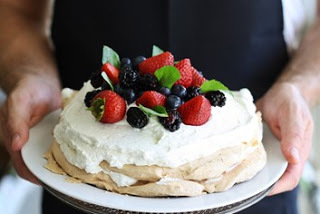 Extra whipped cream for your pavlova for those who answered “h.” As valuable as are all the other options, if the marketing strategies section of the proposal catches my eye, in a good way, I’m more likely to consider the project worth further consideration.
Extra whipped cream for your pavlova for those who answered “h.” As valuable as are all the other options, if the marketing strategies section of the proposal catches my eye, in a good way, I’m more likely to consider the project worth further consideration.
Does that sound like backward thinking? (Not the pavlova. What could be wrong with that?) It’s actually forward thinking—a hope-giver for an agent or editor reviewing the proposal. In many ways, it is a reflection of the strength of all the other elements listed.
Many marketing strategies are like obligatory and clumpy powdered sugar when you were expecting whipped cream. Statements like these reveal that the author may be working with an old, tired recipe or is unaware of the power of a true “strategy” for marketing their book.
I’m willing to participate in a world-wide book tour. (Who wouldn’t be? But world-wide—okay, even state-wide book tours—are a thing of the past, for the most part. For all the parts.) I’m willing to do whatever the publisher asks. (Again, a given. If you’re NOT willing to do what the publisher and its marketing team asks, you may not be ready for traditional publishing.)I’m willing to speak to stadiums full of people to talk about my book. (Yeah, so which is actually less realistic—booking space at a stadium or over-filling it with potential readers?)The “I’m willing” parts of those supposed strategies gave away a hard truth. The author isn’t well-informed about the role of the publisher’s marketing team versus the role of the author. It also reveals a misunderstanding about whose books even qualify for a world tour these days. They’re reserved for…well, for… Nope. Can’t think of an author whose publisher jots “world tour” into their marketing budget.
Another list of tell-tale statements from a not-so-swell book proposal:
I plan to get a website. I hope to start a newsletter. I’m fixin’ to work on building a platform this summer as soon as I finish writing the book.A marketing strategy isn’t a place for wishin’, and hopin’, and dreamin’. It’s for did and done. Authors are sometimes wise to hold off submitting their proposal until they have already created an active and engaging website, have a solid base of newsletter subscribers, and have built a platform that can bear the weight of the work it’s required to do.
 What qualifies, then, as a meaningful marketing strategy? As an agent, I appreciate one thing that works when I see it—CREATIVITY. We can’t shut off our creativity and move solely into business mode when putting together a stand-out marketing strategy. Creativity should be the driving force behind what we include in that section of our proposals.
What qualifies, then, as a meaningful marketing strategy? As an agent, I appreciate one thing that works when I see it—CREATIVITY. We can’t shut off our creativity and move solely into business mode when putting together a stand-out marketing strategy. Creativity should be the driving force behind what we include in that section of our proposals. The best marketing strategies are ideas that will make the marketing team at the publishing house lean forward and say, “I wish we’d thought of that!”
They reveal that the author knows his or her audience well, inventing marketing ideas that tap into reader needs and preferences. They show that the author understands how to connect the book’s themes with specific strategies, like a premade list of potential guest blog post topics related to the story or potential online articles that connect the story to current culture. They engage potential readers/purchasers, not just rabid fans…and I use the word rabid loosely.
Those creative ideas have “legs” that reach an untapped audience.
They tie into the reader takeaway of the book (a companion devotional guide about grief, for instance, or a downloadable map of the imaginary island, or a Top Ten list of ways to be kind to a curmudgeon).
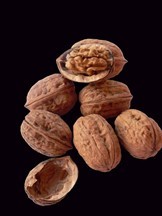 They capitalize on the book’s hook. What giveaways or promotional concepts can emerge from that stunning hook it took a month to create?
They capitalize on the book’s hook. What giveaways or promotional concepts can emerge from that stunning hook it took a month to create? They aim for discoverability and actual book sales. Discoverability alone—informing the public that your book is releasing—is only half the battle. Persuading them to purchase is the end game. (Extra points for those who recognized that as a mixed metaphor disguised as a legit metaphor because a game might well be a battle! I give you Twister and the SuperBowl.)
In a nutshell (see image), a marketing strategy deserves and needs the same level of creativity it took to write your book. Not kidding. It’s definitely one thing that works for me.
(Photos provided by the author via Pixabay)
~*~*~*~*~*~*~
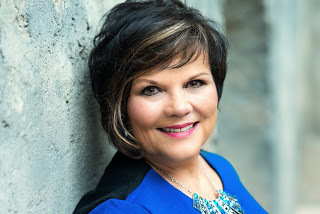 Cynthia Ruchti tells stories hemmed-in-Hope through novels, nonfiction, devotionals, and speaking events for women or writers (or both). Her books have garnered a number of industry awards including reader, retailer, and reviewer honors. She is the professional relations liaison for American Christian Fiction Writers, and serves as a literary agent with Books & Such Literary Management. Her latest release is the novel Facing the Dawn (Revell--a division of Baker Book Group). Watch for this fall's release of the nonfiction Spouse in the House: Rearranging Our Attitudes to Make Room for Each Other (Kregel Publications). You can reach her at https://www.cynthiaruchti.com or hemmedinhope.com
Cynthia Ruchti tells stories hemmed-in-Hope through novels, nonfiction, devotionals, and speaking events for women or writers (or both). Her books have garnered a number of industry awards including reader, retailer, and reviewer honors. She is the professional relations liaison for American Christian Fiction Writers, and serves as a literary agent with Books & Such Literary Management. Her latest release is the novel Facing the Dawn (Revell--a division of Baker Book Group). Watch for this fall's release of the nonfiction Spouse in the House: Rearranging Our Attitudes to Make Room for Each Other (Kregel Publications). You can reach her at https://www.cynthiaruchti.com or hemmedinhope.com
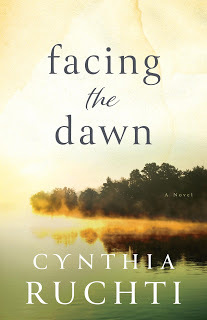
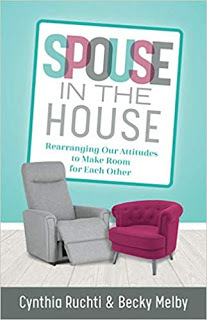
Thank you, Cynthia, for such a great post & valuable insight! What questions do you have for Cynthia about including marketing strategies in your proposal?



